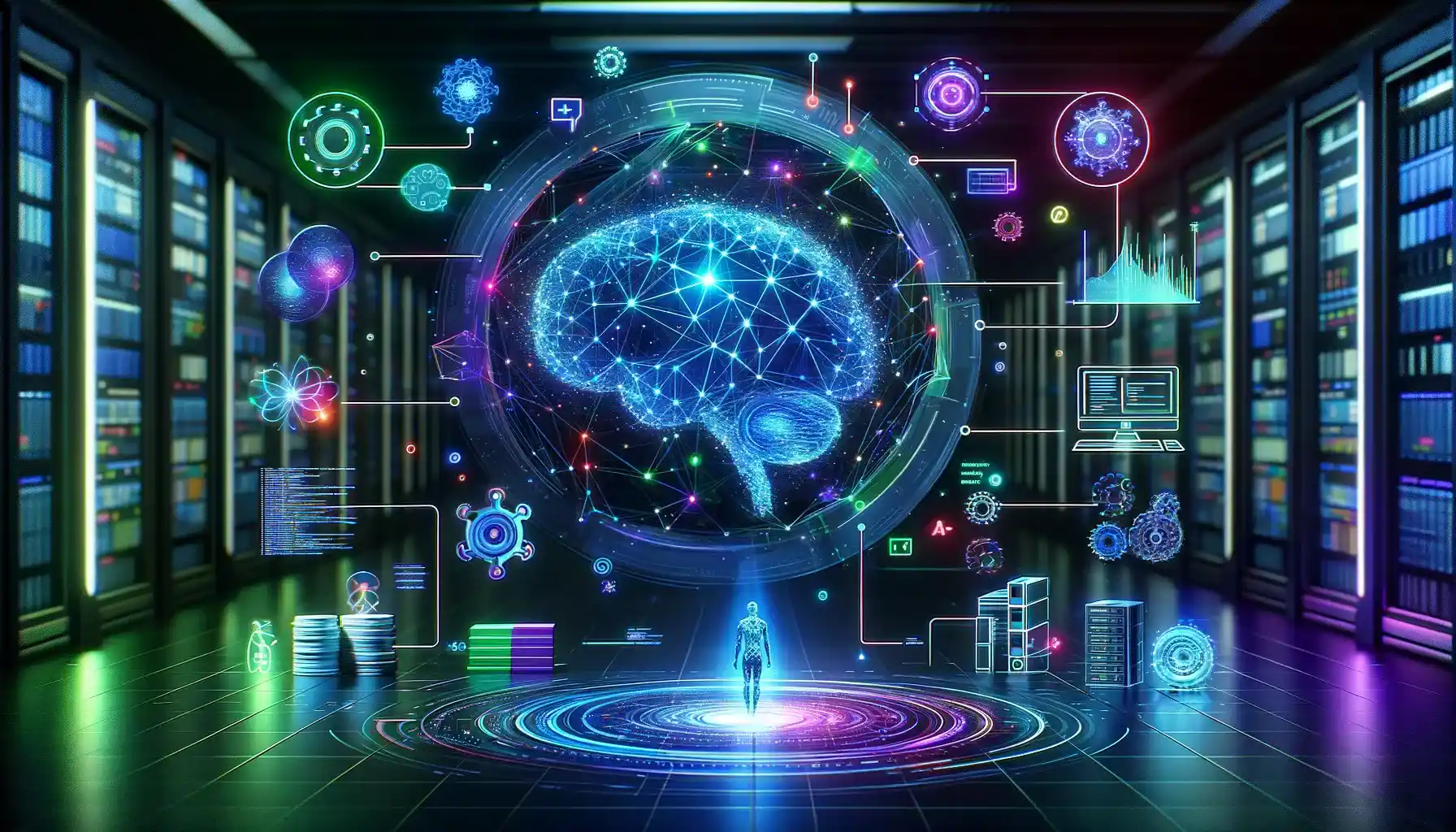Table of Contents
In recent years, the integration of (artificial intelligence) AI into enterprise software development has catalyzed a profound paradigm shift in the industry. This article delves into the transformative impacts of enterprise software development with AI, elucidating nine innovative changes that are fundamentally altering how organizations conceptualize, create, and maintain software solutions. These impacts span the entire software development lifecycle, from initial design to deployment and ongoing management.
By harnessing the power of AI, enterprises are experiencing unprecedented levels of efficiency, agility, and scalability in their software development endeavors. AI-driven automation expedites mundane tasks, such as code generation and testing, allowing developers to focus on higher-value activities and iterate more rapidly. Furthermore, AI-powered analytics provide actionable insights into user behavior, enabling organizations to tailor software solutions to meet evolving customer needs effectively.

With AI’s assistance, enterprises can navigate the complexities of modern software development with greater precision and confidence, ultimately delivering more robust, user-centric, and competitive software products and services. The era of Enterprise Software Development with AI has dawned, ushering in a new era of innovation and opportunity for organizations across industries.
1. Accelerated Development Processes
In Enterprise Software Development with AI, AI-powered tools streamline the software development lifecycle, expediting tasks like code generation, testing, and deployment. Automation accelerates creation, leading to quicker time-to-market and enhanced productivity. Developers leverage AI frameworks to streamline processes, ensuring the development of robust, feature-rich applications. This integration of AI reduces manual effort, allowing teams to focus on innovation and quality, ultimately delivering software solutions more efficiently and effectively.
2. Enhanced Decision-Making
In Enterprise Software Development with AI, AI-driven analytics and predictive modeling play a pivotal role in empowering developers. By analyzing extensive datasets, AI algorithms offer valuable insights into user behavior, performance trends, and optimization opportunities. This data-driven approach facilitates informed decision-making at every stage of the development process, ensuring that developers can address challenges effectively and optimize software solutions for maximum efficiency and effectiveness.
3. Natural Language Interaction
Advancements in natural language processing (NLP) technologies revolutionize Enterprise Software Development with AI, allowing developers to engage with systems using everyday language. This simplifies tasks like code search, documentation, and troubleshooting, expanding accessibility across teams. NLP fosters collaboration, bridging communication gaps and enabling smoother workflows. As a result, software development becomes more intuitive and efficient, empowering teams to focus on innovation and delivering high-quality solutions to meet business needs.
4. Code Generation and Optimization
In Enterprise Software Development with AI, machine learning and genetic algorithms automate code generation, optimization, and refactoring. Developers leverage AI to elevate code quality, boost performance, and ensure scalability, resulting in highly efficient and maintainable software solutions. This integration of AI techniques streamlines development processes, empowering teams to deliver robust applications with enhanced speed and reliability. Through AI-driven optimization, software development reaches new levels of efficiency and effectiveness.

5. Intelligent Testing and Quality Assurance
In the realm of Enterprise Software Development with AI, intelligent testing and quality assurance take center stage. AI-powered testing frameworks revolutionize the identification of bugs, vulnerabilities, and performance issues. These frameworks continuously analyze code and user interactions, utilizing AI algorithms to bolster the reliability, security, and overall quality of enterprise software systems. Through automated processes and meticulous analysis, AI elevates testing practices to ensure robust and resilient software solutions for businesses and end-users alike.
6. Personalization and Recommendation
In Enterprise Software Development with AI, algorithms delve into user preferences, behavior, and past interactions, tailoring experiences. Through custom recommendations and content delivery, AI augments engagement, satisfaction, and retention levels, propelling business expansion and competitiveness in the market. This personalized approach not only fosters stronger connections with users but also enables companies to remain agile and responsive to evolving demands and expectations within the enterprise software landscape.
7. Predictive Maintenance
In the realm of Enterprise Software Development with AI, predictive maintenance stands out as a game-changer. Through AI-based predictive analytics, potential issues are foreseen and tackled proactively, preventing disruptions to system performance or user experience. Whether it’s predicting code defects, system failures, or security vulnerabilities, AI empowers organizations to uphold their software solutions’ efficiency and reliability at peak levels. This proactive approach minimizes downtime, enhances user satisfaction, and ensures seamless operation of enterprise software systems.
8. Efficient Resource Allocation
In Enterprise Software Development with AI, algorithms analyze developer skills, task dependencies, and deadlines to optimize resource allocation. By maximizing productivity and minimizing delays, AI ensures timely delivery of software solutions within budget constraints. This efficient allocation of resources enables organizations to meet project objectives effectively while maintaining cost-effectiveness. AI’s role in resource management empowers teams to operate efficiently and achieve optimal outcomes in software development endeavors.
9. Continuous Improvement and Innovation
Incorporating AI into enterprise software development enables organizations to perpetually refine and innovate their solutions, aligning with dynamic business demands and user preferences. Embracing iterative development, experimentation, and feedback-driven insights, AI cultivates a culture of innovation and agility within development teams. This iterative approach not only ensures that software remains relevant and effective but also encourages continuous enhancement, fostering a cycle of improvement and innovation in Enterprise Software Development with AI.

Closing Thoughts on Enterprise Software Development with AI
The infusion of artificial intelligence (AI) into enterprise software development heralds a profound era of innovation and transformation within the industry. This integration catalyzes a sweeping wave of change, redefining traditional paradigms from the ground up. From expediting development cycles to tailoring user experiences with unprecedented precision, AI serves as the cornerstone of this technological revolution.
Organizations leveraging AI-powered tools and methodologies are empowered to not only keep pace with evolving demands but also to chart new territories of growth and efficiency. By embracing the potential of AI in software development, businesses gain a competitive edge, driving forward in today’s dynamic digital landscape. This shift towards AI-driven development signifies not just a trend, but a fundamental reimagining of how software solutions are conceived, executed, and refined to meet the ever-changing needs of modern enterprises.